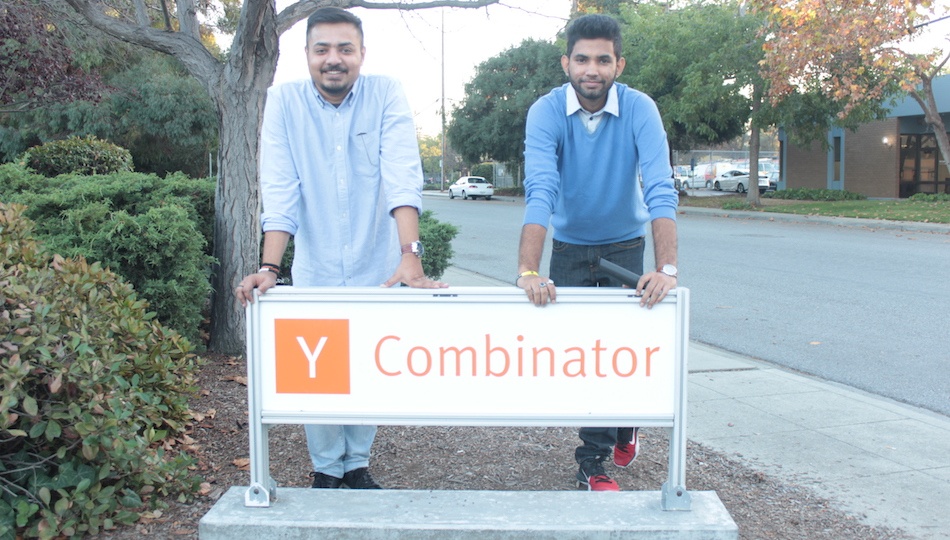
Photo credit: Pexels.
There are over 28 million cars on India’s roads. Thanks to poor roads, crazy traffic, and erratic driving, a car will have to visit a garage multiple times in a year. In 2015 alone, there were 118,438 road accidents recorded.
This is the field ServX is playing in. The startup has a mobile app that helped close to 90,000 users get their cars repaired – over 150,000 repairs – last year.
One-year-old ServX is in the current Winter 2017 batch of Y Combinator and will be launching afresh on March 20. It has plans to grow threefold this year.
“In India, when your car is broken, you have two options. You can either go to an authorized garage and pay a ton of money. Or you can go to a local garage, pay less money, and get poor service – you’ll never know if the spare parts used were genuine,” ServX co-founder and CEO Akansh Sinha says, explaining the problem it is tackling. “ServX connects users to authorized garages which are vetted by our in-house mechanics.”
Chinese app Tuhu, which sells auto parts and connects drivers with garages, raised around US$100 million in August 2015. The startup was valued between US$300 million to US$400 million back then.
ServX has a similar model, except that it’s in India, where a big chunk of the after-sales car service and repairs market is unorganized. Small garages pepper the streets in India. These local mechanics command a substantial clientele and most of their business is unaccounted for. So, it is tough to peg a reliable number to the size of this market. Estimates vary from US$10 billion to US$55 billion, says Akansh.

ServX founders Akansh Sinha and Anubhav Deep. Photo credit: ServX.
Multiple companies are in the field already, some of them with deep pockets. Bangalore-headquartered Bumper, Cartisan, Getcarexpert, and Carworkz by Mahindra are a few.
But the problem is still far from solved and ServX has a few aces up its sleeve, believes Akansh. Quick and inexpensive service through its network of authorized car dealers, for one.
Akansh founded the startup with Anubhav Deep, his collegemate from the Birla Institute of Technology in Mesra, Ranchi, in November 2015.
See: Why do Ola, Quikr, CityFlo love this startup?
The network effect
Akansh and his five-member team spotted an Achilles heel early on – that most authorized car dealers in India are working below capacity. To get an authorized dealership from any of the car brands would cost millions of dollars in capital. For example, the minimum amount of capital you will need to get a Maruti-Suzuki dealership is US$11.5 million, Akansh points out.
“That money will go to Maruti-Suzuki as a deposit, so that you could have about 250 cars with you for sale,” he says. On top of it, you will need to invest heavily in real estate, design the showroom space according to the brand’s specifications, and maintain a trained fleet of staff.
ServX started with Delhi-NCR because of the sheer volume of cars in the city.
But you might not sell a car in 15 days. The service centers attached to the authorized dealers can give them a more regular flow of income. A dealer can repair 25-30 cars each day, because they run at below half of their service capacity. This is the gap Akansh and team made use of.
ServX tied-up with authorized service centers offering them a stream of customers. And in return, got them to sweeten the deal for the customers with good quality service at a discounted price. The company has established a network of 500 service centers in Delhi and the National Capital Region (NCR) around it. ServX charges them a commission of 20-25 percent if the service is cosmetic – like a car wash – and 10-15 percent for regular maintenance and repair.

Photo credit: Pexels.
ServX started with Delhi-NCR because of the sheer volume of cars in the city. “This region has five times more vehicles than any other Indian city,” Akansh points out.
Last September, ServX was processing around 800 orders per day – “that was the peak,” Akansh says. The numbers took a hit after the Indian government clamped down on cash transactions with a demonetization drive in November. “That’s because people in India largely preferred to deal in cash. Over 50 percent of our vendors liked to take cash,” Akansh says. Now, ServX handles 650 orders a day on average.
The startup has built a supply chain for spare parts and is currently testing it out across its network of garages. ServX is planning to move into the two-wheeler repairs space as well.
Getting into the Y Combinator family has “opened up my mind to several more business models and monetization channels, apart from getting us a lot of eyeballs,” says Akansh. Armed with those, ServX wants to establish a trusted network of garages across all of India.
This post Y Combinator-backed startup takes a shot at dominating car repairs in India appeared first on Tech in Asia.